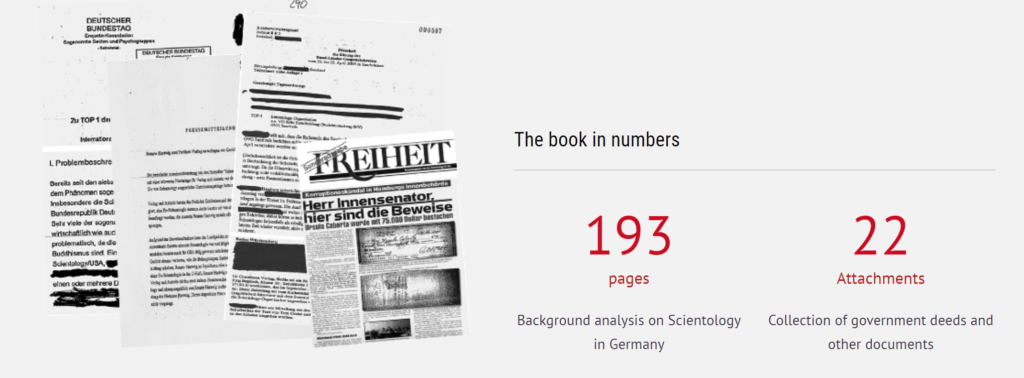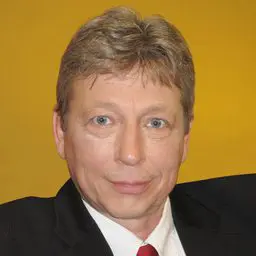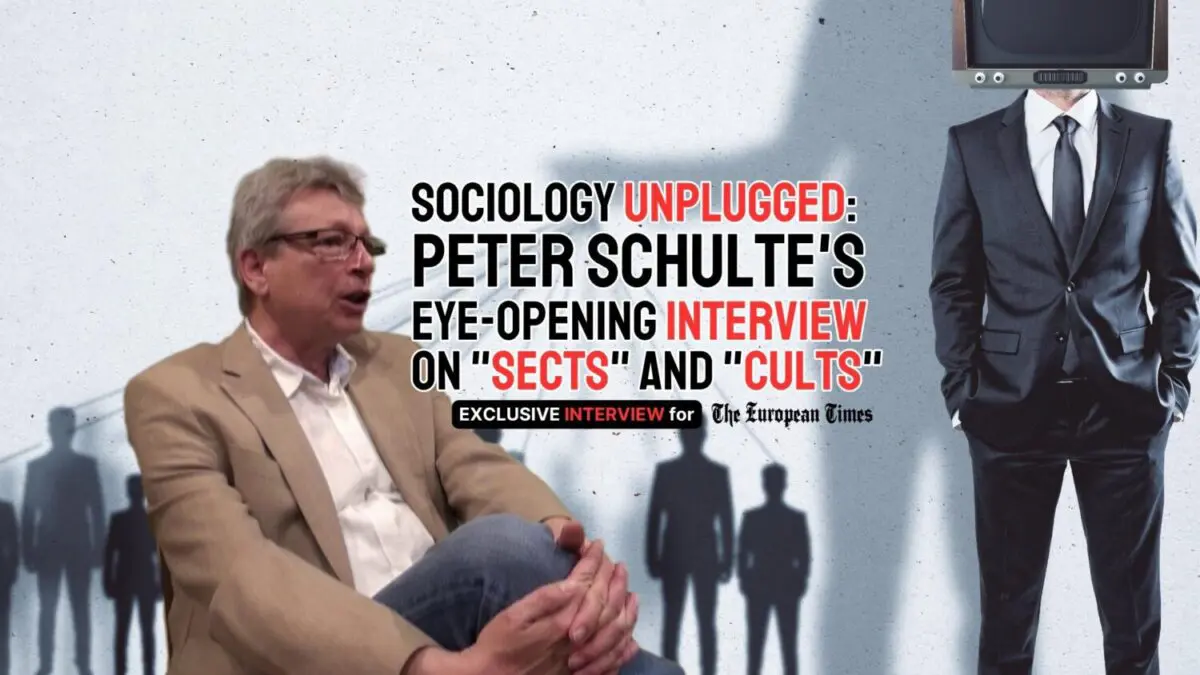In a world where ideologies and sects often stir controversy and confusion, understanding the intricacies of these phenomena becomes paramount. The European Times had the rare opportunity to sit down with Peter Schulte, an esteemed social scientist and former Weltanschauungsbeauftragter (what many called a “sect/cult commissioner”), who delved into the depths of these subjects for over a decade. In this exclusive interview, Schulte shares his profound experiences, reflections, and observations that shed light on the often misunderstood world of “sects” and “cults.”
Introduction
With a career spanning from 1998 to 2010, Schulte’s role as a representative on ideologies and sects exposed him to diverse perspectives and gripping life stories. Contrary to conventional expectations, he found that the true nature of these matters was far more complex and intertwined with society than previously believed. In this sincere conversation, Schulte addresses how his encounters with individuals seeking help often led to surprising revelations, transcending the surface-level portrayal of so-called “cults.”
As the conversation flows, Schulte also delves into his experiences with Scientology, a topic that continues to captivate public attention. Through meticulous research and analysis, he unravels the sociological factors driving the stigmatization of this religious movement, challenging prevailing perceptions and raising thought-provoking questions about societal values and morals. His book covers questions like “On what plausible basis was Scientology declared a social threat? What were the causes of these actions? Which institutions, people or other actors were significantly involved? What means did they use to make Scientology appear dangerous?”.
In this eye-opening discussion, Schulte offers a fresh perspective on the “cult problem,” urging for a more nuanced and objective approach to understanding new religiosity and spirituality. He believes that the state, not just the churches, should play a role in promoting transparency and fostering informed opinions on religious matters.
Join us as we embark on a journey of knowledge and enlightenment with Peter Schulte, exploring the hidden complexities behind ideologies and sects in this exclusive interview brought to you by The European Times.
The European Times: How did you become a “representative on ideologies and sects” (Weltanschauungsbeauftragter)?
Peter Schulte: It was actually quite trivial. I had done my doctorate as a social scientist in 1998, had been working in research for a while and was simply looking for a new challenge. By chance I came across a newspaper advertisement: people were being sought to set up and manage an information centre for religious and ideological issues. The employer was the province of Tyrol. I applied and was accepted without knowing what to expect.
How long did you work there?
PS: From 1998 to 2010, in the socio-political department of the Office of the Tyrolean Government. I had two employees, a large office and was responsible for the counselling and information area of “sectarian issues”.
What experiences did you have during this time?
PS: I found it interesting to know which people approached such an institution with which concerns. The first information I received was material from various sect counselling centres in Germany and Austria, from church and state initiatives and also from private parents. The signs were clear: the danger of so-called cults is very great and I too could be someone involved in the fight against evil in the world. The necessary weapons for this, namely information brochures of all kinds, were provided immediately.
However, the people who approached me directly for advice were less interested in literature. They were more interested in concrete, everyday problems that obviously had to do with the so-called sects. On closer examination, however, it often turned out that their problems were more complex and far-reaching and that the causal problem – i.e. the so-called cult – was only one part of the whole interaction system.
These were mostly individual life stories where an attempt was made to construct a “cult-like” context. Some help-seekers were in such a serious condition that they were no longer able to carry out counselling.
They believed in conspiracy theories and foreign powers that would restrict and manipulate them in their actions. These observations are completely ignored in the counselling scene, although in my opinion, they form an important basis for the discussion on how to deal with so-called cults.
What can you tell us about your experience with Scientology?
PS: Scientology serves many people as a projection screen for evil par excellence. It is completely irrelevant whether the accusations are true or false, what is important is that they serve to perpetuate myths about so-called sects. The counselling scene does everything to transport and maintain this image. It made me wonder when I read that in many counselling centres, Scientology is at the top of the list of requests. I could not make this observation.
During my active time, I expected members of Scientology who were looking for help, accompaniment and counselling in their exit. But no one came to me, instead people from recognised churches who wanted to leave came to me, mostly higher functionaries who did not get along with the church authority. And although they were very committed to the common good, they were full of self-doubt and guilt.
To this day, an open discourse on Scientology is missing, especially the answer to the general question of the meaning of new religiosity and spirituality in a world that has become confusing. I see another problem in the task of the classical media to publish reliable information and facts. However, with the advent of social media and new information channels, they are often forced to generate attention so that their readership does not drop out.
What made you leave the job after 12 years?
PS: I realised I was not getting anywhere. The state government had expectations that I was not willing or able to meet. As long as you spread the “sectarian danger” and thus call the spectre by its name, you are part of a community that knows no self-doubt. Everyone has to think the same and those who do not do so are threatened with exclusion and eternal banishment. It is characteristic of a large part of the counselling scene that it largely ignores contrary opinions and experiences, even though it points to this very problem in “sects”.
You wrote a book sometime later.

PS: Yes, I wanted to make my observations and experiences available to an interested public, to bring a new impulse into the discussion, so to speak. The result was a popular-scientific analysis that looks at the topic on different levels.
Your new book is entirely devoted to the subject of Scientology. Why?
PS: I wanted to know how this controversy came about, why Scientology is being observed by the German Office for the Protection of the Constitution and which sociological factors influence the social image of Scientology. To do this, I researched intensively for years, worked through documents and conducted interviews. The inspection of files of the German Federal Government alone shows how thin the data actually is and that Scientology has actually been observed by the Office for the Protection of the Constitution since 1997 without any basis.
Scientology is an interesting phenomenon because we can observe the sociological factors of exclusion and stigmatisation in the way society deals with this New Religious Movement. This discussion is neither about facts nor truth, but about the handling of values and morals. A religious movement that denounces the past of psychiatry and its methods, in general, has never existed in Germany. At the same time, I could observe that some interest groups work very intensively to present so-called drop-outs as representative of the whole community, with the aim of spreading a negative image of Scientology in society. I sometimes had the impression that this was an attempt to divert attention from the aberrations in the official churches.

What was the reaction to your book?
PS: I expected more: more moral indignation, more arguments, more discussions. Although several thousand books are in circulation, it seems to me that the book is hushed up. Even former colleagues from the consultancy scene did not react to my publication, nor did the German Office for the Protection of the Constitution. Instead, I was able to read a few reviews on Amazon. However, I was neither attacked as a nest-destroyer nor as unscientific.
In the meantime, an English translation of the book is available and will be published soon.
In retrospect: How do you see the “cult problem” in general?
PS: The discussion is completely exaggerated, and nothing is questioned. The area of so-called sects only concerns certain areas of our society, and it is often about value orientations or, simply put, about the question of what is allowed and what is not. There are interest groups that have a problem with new religiosity and spirituality, people who believe that it is harmful to human beings. Why people turn to new spiritual offers, what they are looking for or find there, or the fact that people simply feel well looked after in such groups, that is completely irrelevant to these interest groups.
We should not leave the issue to the churches alone – as has happened in the past – because the state should actually have the task of ensuring transparency in matters of religion or guaranteeing the balance of information. In this way, the citizen could form an objective opinion.
FECRIS is an international association that brings together various anti-sect movements. Did you have any experience with this?
PS: In Austria, there is also an organisation that supports and promotes FECRIS. Its members are whippersnappers who oppose any form of new religiosity and spirituality. They spread strange theories about “cults” and their “methods”. I constantly had the feeling that they were trying to blame family conflicts on “cults”.
What do you do today?
PS: I am a self-employed entrepreneur in the health sector. Here I have to communicate a lot at eye level, which my clients and also I appreciate very much. I am still interested in the topic and occasionally I still receive invitations to give my opinion on the subject of religious movements.
More about Peter Schulte:

Peter Schulte is a distinguished social scientist known for his insightful contributions to sociology and ideologies. He served as a government “representative” on ideologies and sects for twelve years, gaining unique insights into the complexities of religious and ideological issues. Schulte’s research challenged prevailing perceptions, advocating for a more nuanced understanding of new religious movements. Today, he is a self-employed entrepreneur in the health sector, continuing to share his knowledge and expertise. Schulte’s passion for unravelling human behaviour and fostering informed discussions has left a lasting impact on the world of social sciences.







